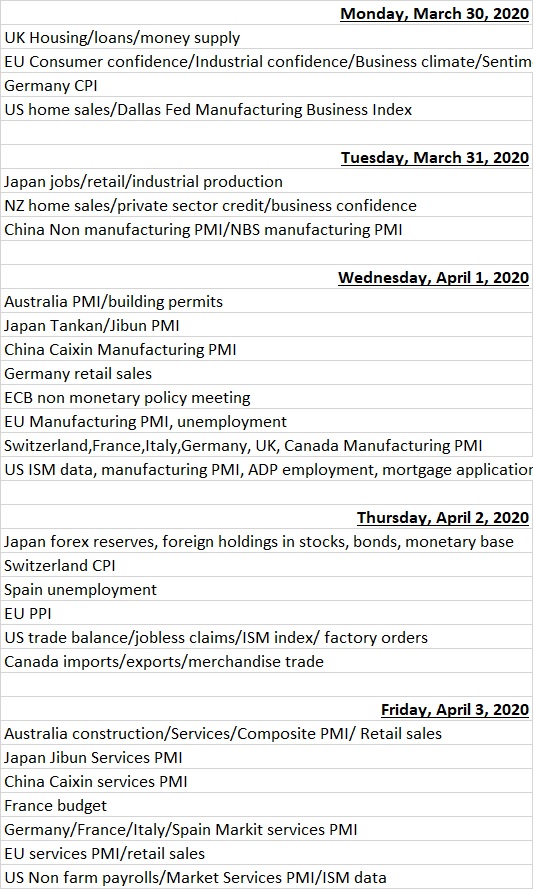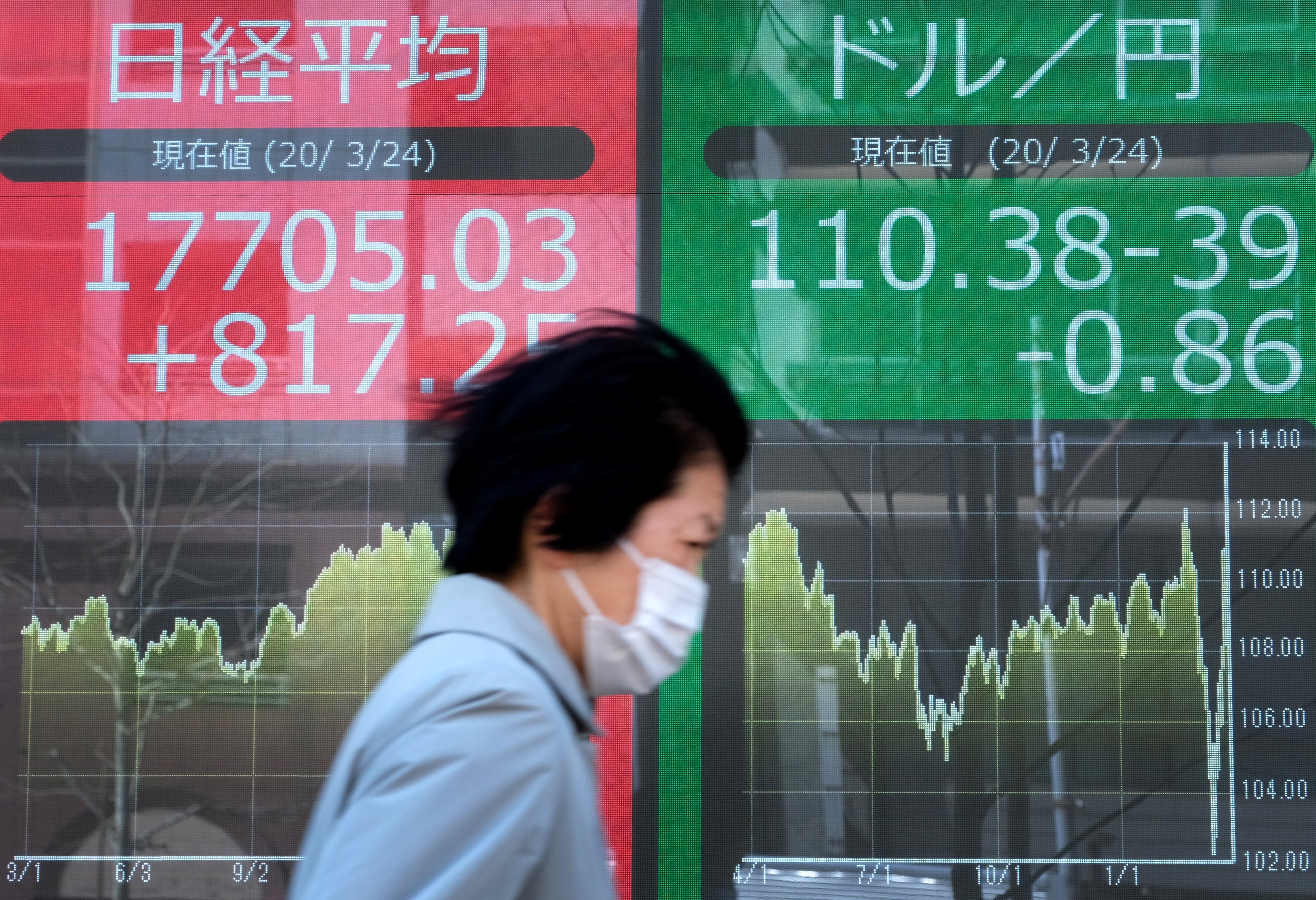Economic events
Investor sentiment remains muted as the world’s biggest economy downs its shutters and the Centers for Disease Control and Prevention issuing travel advisory for three states, although it fell short of the quarantine that US Donald Trump had earlier threatened.
Financial markets will brace for more economic shocks as a batch of economic data unfolds, ranging from PMIs (purchasing managers’ index) to retail sales to labour data from major economies and culminating in release of the much watched US non-farm payrolls information.
The jobs data gains more significance after last week’s report showing an historic jump in US jobless claim to 3.28 million. A Reuters poll showed economists expect the payroll data to show a loss of 293,000 jobs – the largest monthly drop since July 2009.
Economic downgrades continue to rain – JPMorgan economists forecast a two quarter contraction in the US and Euro area downgrading its forecast for the world’s biggest economy significantly. It expects the US economy to contract -10% and -25% in the first two quarters lowering their forecast from the earlier -4% and -14%.
“Governments are acting with extreme measures to contain the virus, and that is broadening the disruption with an unprecedented downturn in economic activity. The key outlook issue now is gauging the depth and the duration of the 2020 recession,” said Bruce Kasman, Chief Economist for JP Morgan.
The International Monetary Fund managing director Kristalina Georgieva said the global economy had already entered a recession “as bad or worse than in 2009.” But she said China was ahead of the rest of the world in terms of being impacted by the coronavirus, having taken containment measures and now stepping up production. “China doing better in 2020, it’s very important for China. It is also very important for the rest of the world given China’s share in the world economy,” she said.
There is unanimous agreement among analysts that the first order of business is to rein in the spread of the pandemic with the infections count in excess of 665,000 and the death count now surging to 30,852 globally. The spike in fatalities and the US infections count, which is now over 125,000, took Wall Street back to bear territory with the Dow Jones index down 25% from its February peak. All three major US stock indexes ended lower on Friday giving back some of the stellar gains of the week.
Fund flow
Reflecting the market’s risk-off sentiment, money market funds continue to attract record inflows with an enormous $254 billion flowing into that asset class in the week to March 25 as investors liquidated both stocks and bonds to get as close to cash as possible, funds data provider EPFR said.
Investors pulled $109 billion from all EPFR-tracked Bond Funds, $26 billion from Equity Funds, $17 billion from Balanced Funds and $1.5 billion from Alternative Funds, it said. And even as the pandemic spreads westwards, Asia ex-Japan Equity Funds benefited from the perception that several Emerging Asian markets are getting the coronavirus epidemic under control, EPFR said.
“China, whose average GEM Equity Fund weighting crossed 30% for the first time coming into March, announced that the lockdown of Wuhan where the virus originated from will start to be lifted on April 8. China Equity Funds absorbed over $3 billion for the second week running and Greater China, Taiwan and Hong Kong Equity Funds also recorded inflows for the week,” it said.
Fixed income funds witnessed their fourth week of outflows “Global Bonds (-US$109 billion) suffered their record heaviest redemptions – HY and IG Corp Bonds were hit by their second consecutive week of record withdrawals while investors continued to buy into US Treasuries,” Jefferies analysts said in a note.
Companies in focus
China Petroleum & Chemical Corporation (Sinopec) after it declared over the weekend its annual results for the year ended December 2019, which showed a 12.8% decline in operating cash flow and an 8.7% fall in net profit despite an increase in revenue from a year ago. Its interest coverage ratio fell to 6.42 from 16.76 and its EBITDA to total debt also fell. The results pertain to a period before the massive drop in international oil prices and the company said it expects international oil prices to fluctuate at a low level and that it will “dynamically optimise capital projects based on future market trends”.
China Construction Bank after it announced flat earnings for the year to December 2019. The bank, one of China’s big four lenders, reported pressure on interest margins, a decline in its non performing loan ratio and a slight improvement in its Common Equity Tier 1 ratio.
Ronshine China Holdings announced it had made open market purchases of its bonds in an aggregate amount of $61.5 million. The company said it will cancel the bonds.
Economic data calendar

























